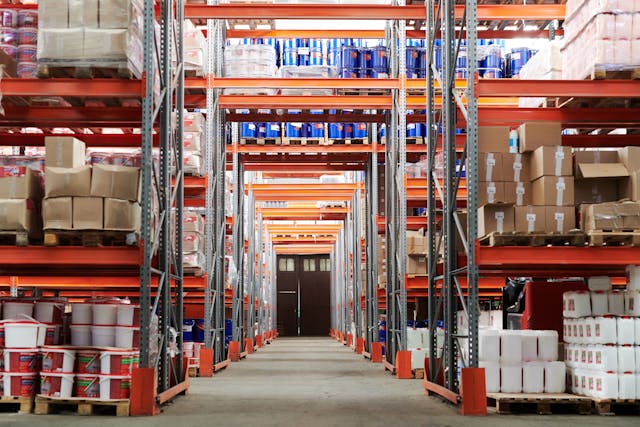South Africa’s retail landscape is rapidly evolving, driven by major players who continuously innovate to meet the changing demands of consumers and businesses. At the forefront of this transformation are Woolworths and Checkers, two retail giants often seen as fierce competitors in the premium grocery segment. However, a closer look reveals a deeper, more strategic alignment between them, especially in areas like B2B logistics, digital fulfillment, and infrastructure development. This is not just a competition for consumers; it’s a race to build the foundation of South Africa’s retail future.
A significant area of convergence is the investment both retailers are making in dark stores—facilities that do not serve customers directly but are designed to swiftly process and dispatch online orders. These optimized micro-fulfillment centers are key to enhancing logistics. Checkers, through its rapidly expanding Sixty60 delivery platform, has increased its dark store presence in high-demand urban areas such as Cape Town and Johannesburg. These hubs improve stock control, shorten delivery times, and expand geographic reach.
Similarly, Woolworths has implemented a comparable strategy with Woolies Dash, which boosts its omnichannel delivery capabilities. Woolworths’ dark stores are strategically located to enable quick fulfillment, focusing on high-value grocery items and meal solutions. Although there is no formal partnership between Woolworths and Checkers, their similar strategies indicate a shared recognition of the importance of B2B-style infrastructure in modern retail competitiveness. These systems not only enhance B2C efficiency but could also cater to broader business customers, including hospitality groups, office catering services, and smaller retailers.
Moreover, both companies are strengthening their B2B relationships through digital solutions. Woolworths operates a comprehensive Partner Hub, which manages everything from product onboarding to promotional scheduling. This platform ensures transparent and scalable collaboration with suppliers, many of whom have partnered with Woolworths for over ten years. Meanwhile, Shoprite Holdings, Checkers’ parent company, is fostering a growing ecosystem of small businesses through initiatives like the Small Supplier Toolkit and a dedicated B2B contact portal, reducing entry barriers and digitizing supply partnerships on a large scale.
These developments highlight a broader shift in South Africa’s retail sector: B2B operations are no longer restricted to back-office functions. The rise of digital procurement tools, data analytics, and fulfillment automation is moving B2B to the forefront of innovation. According to Mordor Intelligence, South Africa’s B2B e-commerce market is projected to grow at a compound annual growth rate (CAGR) of 12.41% through 2030, fueled by rising demand for integrated supply solutions and digital ordering platforms. This creates opportunities for Woolworths and Checkers to expand into B2B services such as wholesale, white-label fulfillment, or retail-as-a-service.
Their investments also position them for broader omnichannel retail success. Whether they are delivering to homes, restaurants, or businesses, both retailers are developing hybrid models that combine logistics, technology, and relationship management. With premium products, fast delivery, and strategic locations, they are quietly constructing the infrastructure that could support not only their stores but also a wide network of South African enterprises. The on-demand grocery and fast-moving goods delivery market in South Africa was estimated at R13.9 billion (approximately $760 million USD) in 2023, representing 1.8% of total FMCG retail. This segment saw a significant +44.1% year-on-year growth in 2023. Woolworths’ on-demand delivery service, Woolies Dash, reported strong growth for the financial year ended 30 June 2024, with sales growing by 71% and achieving a 95% on-time or early delivery rate.
The innovation occurring behind the scenes may be even more transformative than what is visible on the shelves. Woolworths and Checkers are evolving from traditional retail brands into digital logistics platforms that have the potential to reshape how goods are transported, partnerships are created, and efficiency is evaluated in South Africa’s economy.
Keep an eye on these retail giants—not just for their products, but for the extensive networks they are building. The next wave of B2B retail innovation may already be quietly in progress.




